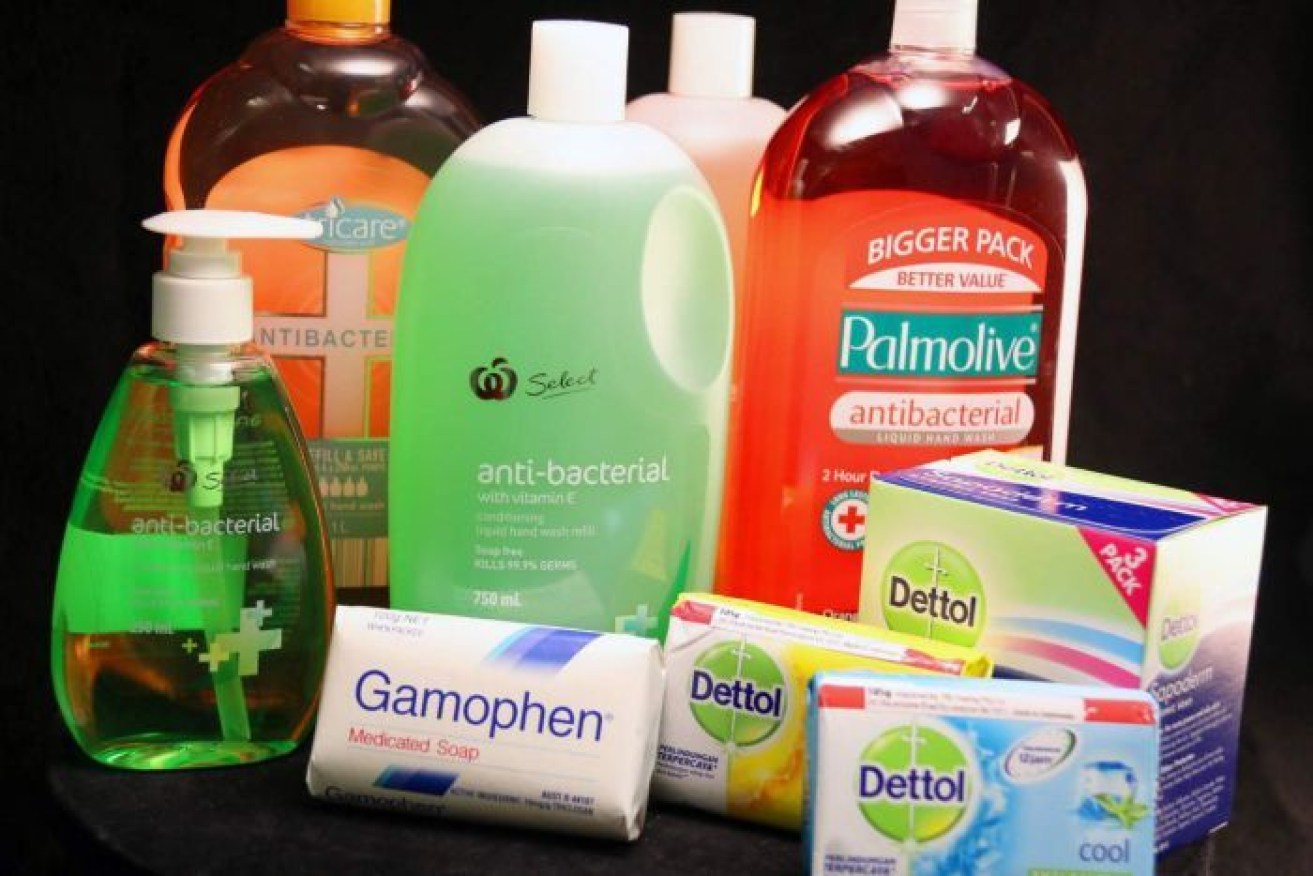Antibacterial soaps ‘doing more harm than good’

Chemicals used in some antibacterial soaps have been banned in the US. Photo: ABC
Australian manufacturers are following the lead of US companies by removing certain chemicals from antibacterial soaps over concerns they could be doing more harm than good.
The ABC has confirmed four producers are set to remove triclosan and triclocarban – which are banned in the United States but legal in Australia – from their products.
A fifth company is looking at reformulating its medicated soap.
Those two chemicals were among 19 active ingredients banned by the US Food and Drug Administration in September.
The FDA said there was not enough evidence to show these products were better than ordinary soap and water, and that they could do more harm than good.

Woolworths, Aldi, Colgate-Palmolive and Reckitt Benckiser (Dettol) said they would remove the products. Photo: Getty
The ruling cited concerns from scientists that long-term exposure to these chemicals could promote antibiotic resistance, disrupt hormones and, potentially, cause cancer in mice.
Calls for similar ban in Australia
Microbiologist Liz Harry, from University of Technology Sydney’s ithree institute, which researches infectious diseases, was pleased about the changes in America.
“I’m really surprised that the US has done this, because there must have been a lot of pressure from commercial entities … I think this is fantastic. I applaud it,” she said.
Professor Harry said the routine use of antibacterial soaps was promoting so-called “superbugs” and called for a similar ban to be introduced in Australia.
“An antibiotic, a drug that you take for infection is the same type of entity that’s in an antibacterial soap. They’re just different types of chemicals. But they’re all called antibacterials,” she said.
“Bacterial DNA can encode resistance. On these same pieces of DNA are resistance to things like penicillin and your basic antibiotics … So that whole piece of DNA goes from one bacteria to millions of others on the bathroom floor.
“Then they’re all resistant, not just to the antibacterial in your wash, but also an antibiotic. That’s where you have a problem.
“There will come a time when antibiotics won’t work. They’re already not working for some diseases. And we don’t have anything else in the pipeline.”
Plans to eliminate chemicals within 12 months
The ABC visited several supermarkets, department stores, pharmacies and discount retailers where soaps containing triclosan and triclocarban are sold legally in Australia.

Johnson & Johnson’s Gamophen soap will get a new formula.
Johnson & Johnson produces Gamophen medicated soap, containing triclosan, for the treatment of acne.
In a statement, the company said it was “exploring options for the reformulation of Gamophen, ensuring it continues to deliver the same quality benefits for consumers”.
When the ABC contacted four other manufacturers, they each confirmed they would eliminate the chemicals that are banned in the US in the next 12 months.
Those companies were Woolworths, Aldi, Colgate-Palmolive and Reckitt Benckiser (RB) – the makers of Dettol.
RB said none of its liquid products contained chemicals banned in the US, adding that: “Dettol bar soap in Australia does contain triclocarban (TCC) at levels well below those considered safe by authorities such as the European Scientific Committee on Consumer Safety (SCCS).

Sydney’s St Vincent’s Hospital stopped using triclosan in 2011 after it was found to be ineffective. Photo: ABC
“As with all our products – they comply with the local regulations of the markets in which they are sold.
“By the end of 2017 none of our formulations will contain TCC.”
Aldi, Woolworths and Johnson & Johnson distribute soaps containing triclosan, a chemical Sydney’s St Vincent’s Hospital stopped using five years ago when it was found to be ineffective.
However, Gulietta Pontivivo, the nurse manager for infection prevention and control services at the hospital, said it was important that healthcare workers still had access to the products.
“There was quite a lot of resistant bacterial germs – [from] microbes to triclosan. So we moved over to chlorhexidine. But we still have it available because some of our patients are allergic, so it’s important that we have a choice,” she said.
The FDA decision excluded hospitals, where antibacterial products are critical to prevent infection.
-ABC








